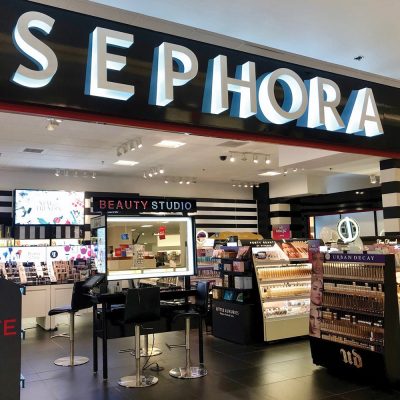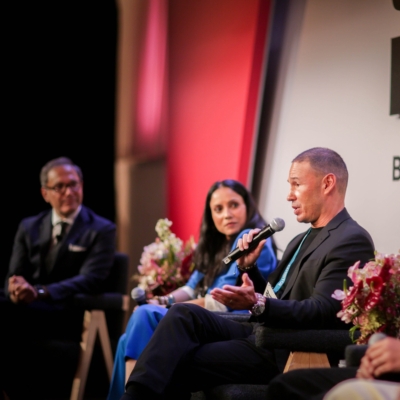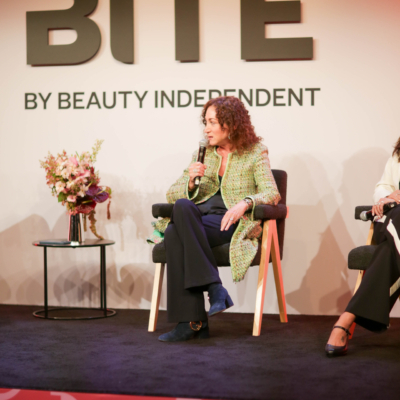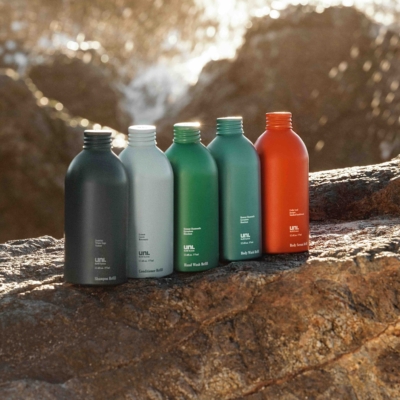
How Sunscreen Brands Can Rebuild Consumer Trust After Recent Scandals
The beauty industry is lurching from one sunscreen controversy to another, leaving consumers to wonder what works and doesn’t to protect their skin from harmful ultraviolet radiation.
In May, Primally Pure launched a campaign for beef tallow-infused mineral sunscreen with billboards in Los Angeles and Chicago that declared, “The sun isn’t poison but your sunscreen is,” enraging beauty industry insiders worried the messages instill fear in people and undermine usage of sunscreens to prevent skin cancer.
Primally Pure founder Bethany McDaniel has doubled down on the campaign, asserting on social media that it’s intended to inspire conversation and that the brand is not anti-sunscreen, but “pro questioning what’s inside of the products we are putting on our largest organ, the skin.” The brand avoids sunscreen filters such as oxybenzone and octinoxate due to concerns that the filters are potential endocrine disruptors. Michelle Wong, the cosmetic chemist and science educator known as Lab Muffin, points out they haven’t been documented to disrupt human hormones at the levels in sunscreens.
Soon after, Tower 28 came under fire for claiming its mineral sunscreen SOS FaceGuard SPF 30 left no white cast, even on deep skin tones, but the faces of content creators, notably cosmetic chemist and consultant Julian Sass, showed that not to be the case. In response, Tower 28 founder and CEO Amy Liu issued an apology on social media and said the brand would remove the words “no white cast” and “universal tint” from marketing, reformulate the product, enhance its testing approach to standardize use across participants, and collaborate with experts and chemists to ensure that future releases serve its diverse community.
Earlier this month, buzzy Australian brand Ultra Violette became the latest subject of sunscreen controversy when Australian consumer advocacy group Choice received SPF ratings of 4 and 5 in independent tests of its Lean Screen SPF 50+ Mattifying Zinc Skinscreen. Choice tested 19 other sunscreens, including from popular brands Banana Boat, Bondi Sands, Neutrogena and Sun Bum. Sixteen out of the 20 tested had SPFs lower than advertised, but Lean Screen garnered the lowest SPF ratings out of the group.
Publicly releasing its testing of Lean Screen, Ultra Violette, which entered the United States across all Sephora doors in March, reacted by sharing that it tested the product in 2021 and 2024 to meet standards set by Australia’s Therapeutic Goods Association (TGA) and the U.S. Food and Drug Administration. The brand conducted a 10-person panel test on the same batch of products in Choice’s independent testing and arrived at an SPF of 61.7. It challenged the decanting of its sunscreen in Choice’s tests—or its placement in amber glass jars—and whether it was properly labeled.
In a statement on its website, Ultra Violette wrote, “We rigorously retest our entire SPF range every two years. Lean Screen has been on the market for 5 years in 29 countries and we have not received a single substantiated claim of sunburn during use – reinforcing our confidence in the testing we have.”
Facing sharp criticism from Ultra Violette fans, Choice also made its testing available online. In a statement on its site, Choice CEO Ashley de Silva stood by the organization’s results and emphasized it had operated in strict accordance with sunscreen standards in Australia and New Zealand and tapped accredited laboratories for testing like Eurofins Dermatest.
The statement read, “We believe the discrepancy between our test results and those provided by manufacturers warrants further investigation by the TGA. We are calling for a compliance review, including independent testing of the mean SPF for, at least, the sunscreens that did not meet their label claims in our commissioned tests.”
Against the backdrop of these sunscreen scandals, for this edition of our ongoing series posing questions relevant to indie beauty, we asked 10 cosmetic chemists and brand founders the following: What steps should sunscreen brands take to maintain consumer trust?
- Esther Olu Cosmetic Chemist, The Melanin Chemist
I believe sunscreen brands must prioritize transparency, evidence-based claims and responsible marketing to maintain consumer trust, especially in a time when misinformation spreads quickly and skepticism is high.
First, brands should ensure their SPF claims are substantiated by rigorous, third-party testing that aligns with regulatory standards such as ISO 24444, the newly introduced ISO 23675 and ISO 23698 or FDA protocols (and/or other international regulatory bodies) and be forthcoming about these testing methods. This also includes testing at multiple independent labs (not just in-house), if budget allows and validating the labs you outsource testing to.
While publishing isn't a requirement, publishing clear data regardless if the sunscreen is mineral or chemical on both SPF value and visible cast performance, particularly important for mineral sunscreens, across a range of skin tones can go a long way in building credibility.
Additionally, avoiding fear-based or misleading marketing like framing all traditional sunscreens as “dangerous” like Primally Pure did is critical. Such tactics may sell short term, but will ultimately erode public confidence in sunscreens as a whole.
Educating consumers on how sunscreen works, what SPF testing entails and why certain formulation choices like high concentrations of mineral filters or the usage of SPF boosters may result in trade-offs like cast, for example, can empower users rather than confuse them.
Lastly, inviting collaboration by working with voices like dermatologists, chemists, aestheticians etc., into the product development and communication process ensures that claims are grounded in science, not just marketing. In a landscape where consumer literacy is growing, integrity is not optional, it’s essential.
- Emily Luise Cosmetic Chemist and Founder, Emily Luise Skin
As a cosmetic chemist, I believe the best way for sunscreen brands to maintain trust is to go beyond what’s legally required and actively demonstrate transparency and scientific integrity. Brands should publicly share their SPF test results, including the method used, testing lab and date of testing, and not just make broad claims.
They should also retest real-world batches over time, not just once during development, to prove the formula holds up in actual packaging under normal use conditions. This is especially important for mineral sunscreens, which are more prone to instability over time.
Brands should clearly explain their packaging choices, show who formulates their products and use social media not just to promote, but to educate, explaining how sunscreen is tested, what causes it to fail and how to store it properly. When things go wrong, leading with science and transparency rather than defensiveness is key. In short, trust today isn’t built through marketing claims, it’s built by showing your work.
- Julian Sass Cosmetics Chemist and Consultant
When it comes to testing, sunscreen testing in itself is a flawed science as the methods we have at present are rather crude, have a lot of inherent variability, and it's expensive. At this stage, the best that brands can do is to have their product go through SPF testing in at least two labs in order to verify that their results are somewhat robust.
Additionally, it's highly recommended that brands undergo in vitro SPF testing as well as a three- to five-panel test before undergoing the 10-panel test required by most regulatory bodies. Additionally, ensure your CM (contract manufacturer) has good QA/QC (quality assurance/quality control) procedures in place before releasing a batch of sunscreen.
Brands should also have SOPs (standard operating procedures) in place to identify the sources of problems in case issues do happen once a product is on the market. Issues can happen with testing methods with external labs as well as the contract manufacturer.
When it comes to marketing, just be as honest as you can with your customer. If you're making a mineral sunscreen, simply don't say it has no white cast because that is an impossible task to make a mineral sunscreen that is invisible on all consumers.
- Laura Lam-Phaure Founder, Lam Phaure Beauty
When I see stories like that, it immediately signals one of two things: Either the brand isn’t consulting with a qualified technical expert during critical stages of product development and launch or they’re willfully disregarding that expert’s guidance. Both scenarios are deeply concerning, especially for sunscreen brands.
Sunscreen isn’t just another skincare product. In the U.S., it’s classified and regulated as an over-the-counter (OTC) drug because it plays a life-protecting role for many. With the key defense against skin cancer, sunburn and premature aging, that level of responsibility demands a high standard of formulation, testing and communication.
When brands prioritize trendy marketing over regulatory compliance or scientific accuracy, especially to better align themselves with the broader skincare community, they’re not just being irresponsible. They’re actively undermining consumer trust and potentially putting people’s health at risk.
Sunscreen brands need to act like they are making a drug because they are. That means partnering with qualified technical experts, chemists and regulatory experts from day one up until launch date and even beyond, backing up every claim with robust and validated data with the intended use in mind, being transparent about what your product does and doesn’t do, who it is best aligned for and how it was tested. Above all, respecting the fact that your product is meant to protect, not just sell.
Sunscreen brands that want to build lasting credibility and loyalty must lead with science, not spin. The consumer deserves that, and so does the category.
- Krupa Koestline Chief Chemist, KKT Innovation Labs
Right now, more than ever, sunscreen brands have a responsibility to shift from marketing to meaningful education. Too often, brands try to “sell” their choice of UV filters—positioning it as the superior or only safe option—when in truth, there is no perfect solution today. Every filter comes with trade-offs: mineral sunscreens can leave a cast or feel heavy, while many chemical filters are still caught in outdated regulatory limbo, especially in the U.S.
Rather than justifying their decisions with buzzwords or fear-based messaging, brands need to explain why they made the formulation choices they did, what compromises were involved and how they validated safety and performance. This kind of transparency doesn’t weaken consumer confidence, it strengthens it.
And, ultimately, this is how we push for regulatory reform. Informed, engaged consumers are what move the needle. We won’t modernize the sunscreen space through fear or virtue signaling. We’ll do it by building trust, educating openly and advocating for science-backed innovation that’s safe, effective and inclusive.
- Michelle Wong Cosmetic Chemist and Science Communicator, Lab Muffin Beauty Science
Sunscreen brands should be very careful in choosing the lab they use for SPF testing, and stay on top of potential batch variations. They also shouldn't lean into fearmongering in their marketing such as by capitalizing on trending negative sunscreen news stories or denigrating other sunscreen ingredients or brands.
Brands should also make sure any claims they make are supported by solid evidence. Hiring a claims consultant is a good idea. Since most sunscreen failure is due to user error, sunscreen brands should also aim to educate their customers on correct sunscreen usage and good sun protection practice more generally.
- Perry Romanowski Cosmetic Chemist and Co-Host, The Beauty Brains Podcast
More transparency might help. Brands should clearly communicate how their SPF ratings are determined, including the specific test methods used, whether ISO, FDA or others. They could likely have this listed on their website in an easy-to-understand page. This will help consumers know that the number on the label reflects reliable, repeatable testing. Referencing third-party or independent lab results whenever possible helps reinforce credibility.
Next, precision in language is also important. Vague or fear-based terms like "chemical-free" or "non-toxic" create confusion, not clarity. Consumers deserve accurate, science-based explanations of what a product does, how it works and who it is best suited for. If a formula leaves a white cast on deeper skin tones, it should be disclosed. If it does not, the data behind that claim should be shared.
Finally, accountability matters. When a product fails to perform as promised or when valid concerns are raised, brands should respond directly and honestly. That may mean retesting, reformulating or correcting public statements. Consumers might be more willing to trust brands that show a commitment to continuous improvement and scientific integrity.
The sunscreen category has a responsibility that goes beyond marketing. Trust is earned through clarity, consistency and a clear respect for both science and the people using these products. I'm not really certain that these will help earn back trust from consumers, but these actions would be better than nothing.
- Liah Yoo Founder and CEO, Krave Beauty
It's no secret that SPF testing has reliability issues. We once sent the same batch of a mineral sunscreen to two different labs and got back SPF 33 and SPF 15 using ISO 24444 method. We then halted the project.
Given this industry-wide challenge, we believe the most responsible path forward—and the best way to maintain consumer trust—is for brands to verify their findings. Although it is a costly measure, investing in another testing with a second, independent lab is a necessary step to confirm a product's efficacy before it reaches the shelf.
- Ava Perkins Cosmetic Chemist
Brands need to be incorporating education and transparency into their core values. We are in an era where consumers are eager to learn but are often overwhelmed by conflicting information. Transparency is no longer optional, it's the bare minimum.
To build trust, brands must stay informed about common sunscreen misconceptions and be honest about the limitations of their product before it launches. Leading with honest, educational messaging (that does not incite fear) is essential to earning and maintaining consumer trust.
I really don’t think it would hurt to have sunscreen testing published somewhere on a brand’s website. It doesn’t need to be the center of their marketing, but at least having the resource available can help consumers feel more confident in their decision.
- Gloria Lu Co-Founder, Chemist Confessions
In a nutshell, transparency and education. That means discussing test results openly, representing diverse skin tones honestly, and the most difficult part, avoid fear-based marketing. Unfortunately, fearmongering sunscreen as we all know has been very successful. This doesn't just erode consumer trust in sunscreen brands, but promotes poor, unsafe sun safety actions all around.
This is why brands should invest in education helping consumers understand how sunscreen works, how to apply it correctly and why consistent use matters. Ultimately, trust should come from clarity, not confusion.
If you have a question you'd like Beauty Independent to ask cosmetic chemists and brand founders, please send it to editor@beautyindependent.com.






Leave a Reply
You must be logged in to post a comment.